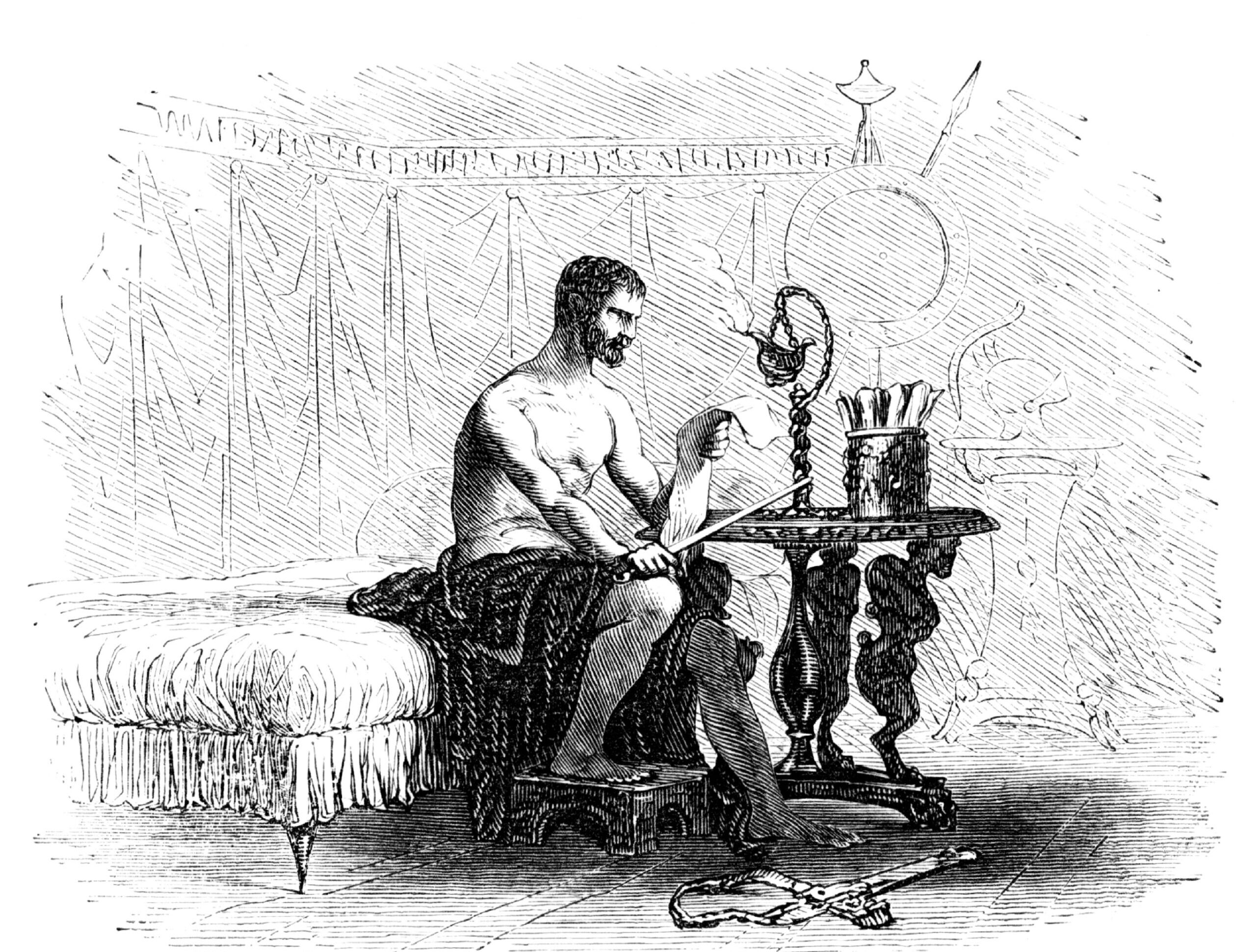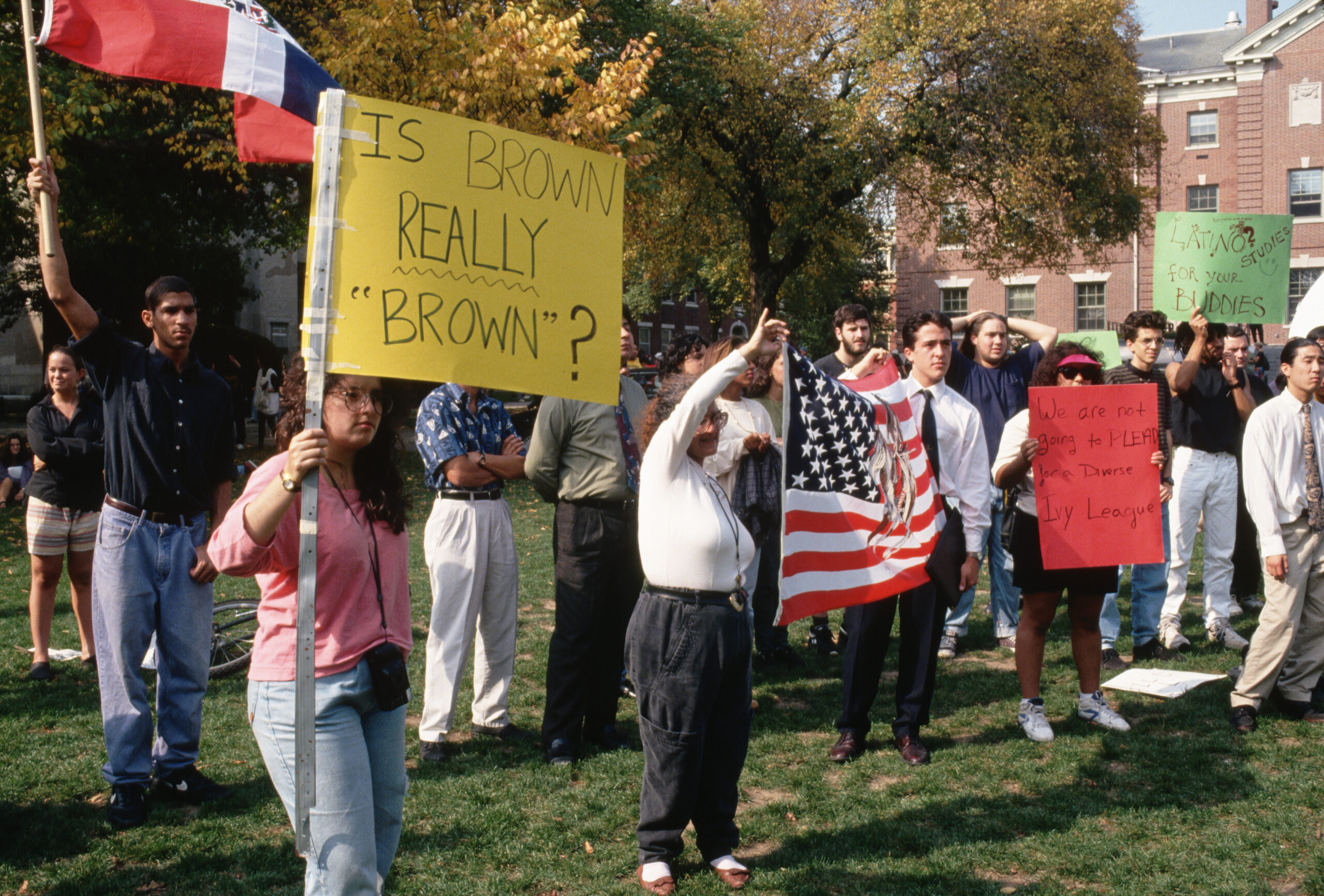Is the study of philosophy good for a republic?
Cato the Elder, the most conservative of Romans, thought not. He was appalled by the demonstration of learning made by the three philosophers Athens sent as an embassy to Rome in 155 B.C. Young Romans flocked to hear Critolaus, Diogenes of Babylon, and above all Carneades—scholarch of the Academy that Plato had founded centuries earlier—deliver public lectures on justice and other topics. Seeing how these speeches affected the city’s youth, Cato urged the senate to ban Greek philosophers from all of Italy.
The Academy had taken a skeptical turn since Plato’s time, and when Carneades proved that he could argue against justice as persuasively as he could make the philosophical argument for it, Cato perceived a danger. According to Plutarch, however, the very practice of philosophical discourse struck Cato as un-Roman: it tempted the youth to value words over action, and such a “zeal for discussion” could only poison the republic.
Cato’s great-grandson, Cato the Younger, was no less a patriot than his ancestor had been. Yet the later Cato was devoted to a philosophy as well, and his Stoicism reinforced his resolve to oppose the lawless generals who sought to overthrow the Roman state. At last he took his own life rather than surrender to Julius Caesar, and in death his fame has endured. He became a symbol of republican resistance to tyranny: the 1713 play that Joseph Addison wrote about him, “Cato: A Tragedy,” was beloved by George Washington and is reputed to have been performed by his troops at Valley Forge.
Cato the Younger’s Stoic intransigence has also been faulted for exacerbating the conflicts leading Rome to its final civil wars. Yet once the Caesars had established their autocracy, other Stoic statesmen not only preserved the memory of Rome’s free men and institutions but continued to live according to philosophical truth. As Tacitus relates, this cost senators such as Thrasea Paetus, Helvidius Priscus, and Herennius Senecio their lives.
The ceaseless pursuit of reason and truth might be dangerous to any regime, republican or despotic. Whether or not philosophy creates doubts about the meaning of justice in even a free society, philosophical investigation can, in the wrong hands, easily lead to endless and perverse questioning of everything. The philosopher must have self-discipline to avoid that vice, but in all too many free societies democratic institutions encourage self-indulgence instead. The state of the American academy and free press attests to this.
In a modern republic such as the United States, public deliberation necessarily plays a wider role than it did in the Rome of Cato the Elder. For Cato, too much talk could only mean distraction from the citizen’s primary duty of being prepared for war. What Cato took to be diversions are for most Americans the very things politics is supposed to serve: the features required for a life of commerce, culture, recreation, and, yes, discussion, philosophical or otherwise. Even without the First Amendment, there would be no possibility of banning philosophy from a republic like ours.
But this means that the vices of philosophy, or simply discussion, must be counteracted by other measures. If the life of war is not the life that most Americans are supposed to lead, they should nonetheless cultivate a republican character through the study and use of history—which is, of course, traditionally the record of war and of “war by other means,” including diplomacy, domestic politics, and social conflicts. To theorize about justice before acquiring a grounding in history (and not only the history of arguments over justice) is as destructive for our republic as Cato feared philosophy would be for Rome.
Edmund Burke was not unphilosophical, yet he argued against the injection of philosophical speculation into politics. Not every philosophe in eighteenth-century France or all of their fellow travelers in Britain wished to ignite a revolution. But Burke foresaw better than they did what the consequences of their ideas would be. He met the challenge of their metaphysics not with a rival system of his own but with a rejection of the very idea of conforming politics to a rationalist vision.
In more recent decades, Burkean conservatives in America such as Russell Kirk and Robert Nisbet have likewise presented an alternative to philosophical politics. What they abjure is not philosophy itself but irresponsible philosophizing about everything, especially politics. There is no question of eliminating speculation from modern political discourse, yet to the extent that it can be contained, it should be. The alternative is not a republic more dedicated to truth; it’s moral anarchy followed by the establishment of new unphilosophical “truths” by coercion. This was the pattern the French Revolution followed, and it appears in another form in the United States today.
Those who fear that Burke’s conservatism is insufficiently anchored by philosophical truth, or the willingness to defend it, are not wrong to believe that something more is needed. Richard Weaver and Leo Strauss both published cogent criticisms of Burke the same year that Kirk published The Conservative Mind. The question of what more is needed beyond Burke should not, however, detract from an appreciation of his true insights. Philosophy demands responsibility, and in a world where the latter is lacking, philosophical speculation readily leads to incendiary politics.















